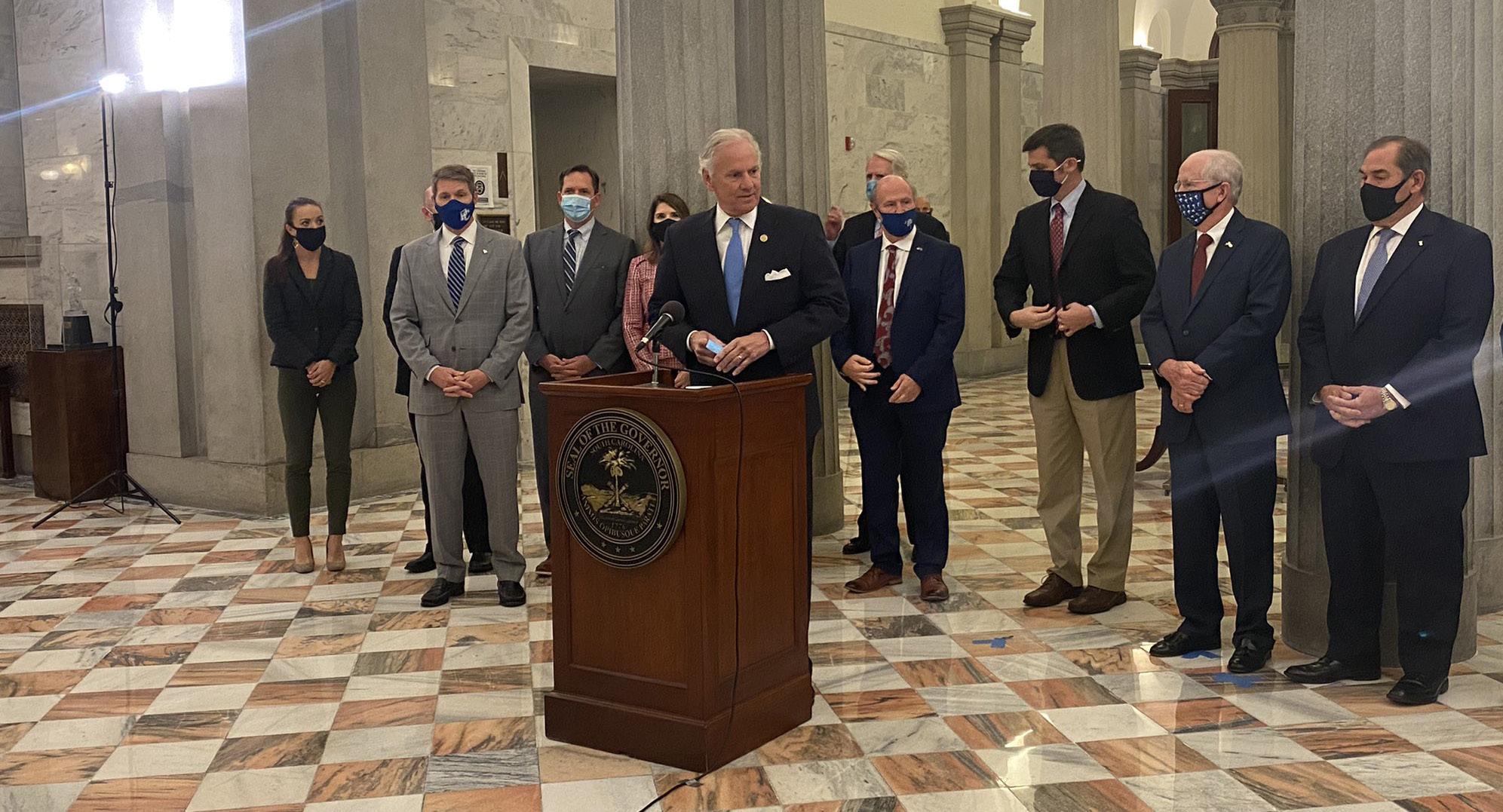
3 minute read
2020 General Election Overview
While the Presidential election was the most unusual one she’s ever seen, Emily Loeb, partner at Jenner & Block, Washington, D.C., says other elections at the federal and state levels were just as important as the one for the White House.
Races in Alabama, Arizona, Colorado, Maine, North Carolina, Montana, South Carolina, and Iowa were especially close and key to a Democratic upset in the Senate, she says.
Advertisement
Republican Lindsey Graham defeated Democrat Jamie Harrison, 55-44% in a hotly contested race that gained national attention over recent months. Harrison, who broke national Senate fundraising records, could not overcome Graham’s stronghold in the state allowing Graham another six-year term in the U.S. Senate. In the House, races for 28 seats were competitive, but no matter who won those contests, Democrats were likely to retain control.
In South Carolina’s Second District, Joe Wilson handily defeated political newcomer Adair Boroughs, sending him back to Washington for his tenth term. Congressman Jim Clyburn will be the only Democrat representing the Palmetto State in Congress with Republicans William Timmons, Jeff Duncan, and Ralph Norman cruising to victory.
Republicans reclaimed South Carolina’s First District in a 51-49% upset, as Nancy Mace defeated Joe Cunningham. Mace is the first female to win the District and is also the first South Carolinian woman in Congress since the 1980s.
And in one of the biggest shifts to potentially affect business as well as social issues for years to come is the appointment and confirmation of conservative judge Amy Coney Barrett to the Supreme Court.
State Elections in the Palmetto State State contests are important because winners will redraw legislative districts based on this year’s Census count. Up for election are governorships in 11 states, attorneys general in 10 states and 86 state chambers, 22 of which are expected to be closely contested.
In what can only be described as a red Republican wave, upsets resonated across the Palmetto State on Election Day.
South Carolina Senate Republican Penry Gustafson defeated Vincent Sheheen (Democratic incumbent – District 27), who served 20 years in the Senate, by a 51-49% margin;
while Floyd Nicholson (Democratic incumbent – District 10), who represents a district that has been Democratic since at least 1966, was defeated 56-44% by Republican Billy Garrett.
Republican Josh Kimbrell also defeated Glenn Reese (Democratic incumbent – District 11) 55-45%. With the retirement of Senators John Matthews (District 39) and Paul Campbell (District 44), there are now five open seats on the influential Senate Finance Committee.
In Charleston County, where some legislative shifts were expected, the makeup of the legislative delegation remained the same. The political makeup of the Senate, which was previously 27-19, has now shifted to a 30-16 Republican majority.
South Carolina House of Representatives The Republican Party in the House of Representatives followed the same trend as the Senate, with Republicans picking up two seats, taking the House to an 81-43 majority.
There will be 15 new members in the House of Representatives next year after retirements, primary losses and after two incumbents, Mandy Powers Norrell (Democratic incumbent – District 44) and Laurie Funderburk (Democratic incumbent – District 52), were defeated in Tuesday’s election.
Pandemic relief At the beginning of November, Congress had proposed additional rounds of pandemic relief, including bipartisan legislation in both the House and Senate for $120 billion in grants to restaurants, a second round of forgivable Payroll Protection Program loans, employee retention tax credits, a “healthy workplace” tax credit for increased COVID-related business costs, and other measures.
While negotiations are currently stalled, it’s critical for restaurant operators to stay engaged and keep pressing so there’s a breakthrough by the end of the calendar year,” says Aaron Frazier, the Association’s director of healthcare and tax policy.
After the election, expect increased federal oversight and investigation of where money spent for the CARES Act actually went, says Gabriel Gillett, partner, Jenner & Block, Chicago.
While the Small Business Administration has only just begun the forgiveness process for PPP loans, the Justice Dept. has begun fraud prosecutions against those who received loans illegally, for example.
Next up for regulators in the new year, he suggests, will be high interest in issues surrounding workplace health and safety, employment and labor, and privacy.
In general, he says, election wins that give Democrats either the White House or a majority at federal or state levels will result in more regulation; a Republican win in the national election will result in less federal regulation, but potentially more state regulation.







